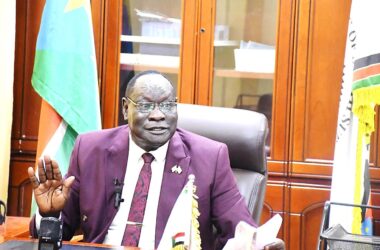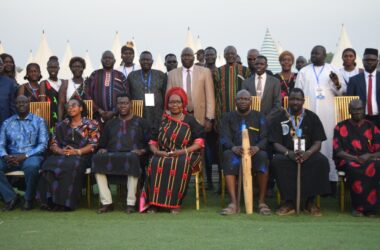
By Kei Emmanuel Duku
Joseph Africano Bartel, the Undersecretary of the Ministry of Environment, is urging South Sudan to leverage its rich deposits of rare minerals to advance the country’s economic and environmental goals, particularly in the growing electric vehicle (EV) sector.
Electric vehicles (EVs) reduce carbon emissions primarily by having zero tailpipe emissions. Unlike conventional gasoline or diesel cars that burn fossil fuels and release pollutants directly into the atmosphere, EVs run on electricity.
While there are emissions associated with electricity generation still EVs produce a smaller overall carbon footprint than gasoline cars over their lifetime, including manufacturing, charging, and disposal. The environmental benefits of EVs will continue to increase as the electricity grid shifts towards renewable energy sources like solar and wind power.
Bartel emphasized that as the world shifts toward electric vehicles to combat climate change, minerals such as copper, cobalt, and lithium are in high demand for batteries and electronic components. “Our country is sitting on a goldmine of these rare minerals,” he stated. “We have a unique opportunity to become a key player in the global green economy.” He noted that these minerals, often found as “rare earth” elements, don’t require deep mining, making them easily accessible.
He raised concern over what he described as a “scramble” for these minerals occurring along the country’s border areas, where individuals are extracting soil with simple excavators and transporting it to refineries in countries in Western countries’. “This is a form of exploitation,” Bartel said. “We are essentially giving away our future wealth for a pittance, while others refine these resources and sell them back to us at exorbitant prices.”
Bartel likened the situation to the country’s oil exports, which are shipped as crude oil and returned as expensive, refined products like petrochemicals and asphalt. He stressed that by refining its own minerals; South Sudan could create jobs, add value to its resources, and increase national revenue. “We must move away from being a raw material exporter,” he insisted. “By processing our own resources, we can create jobs for our youth and secure a more prosperous future for everyone.” This approach, he said, should also be applied to other sectors, such as forestry, to stop the export of raw timber and encourage local processing.
Bartel’s comments came during a stakeholder consultation meeting where he underscored the importance of a national stocktake to accurately quantify South Sudan’s carbon emissions and sequestration capabilities.
He believes having this data is crucial for effectively participating in the global carbon trade market. He also warned against external brokers, urging the government to be vigilant and ensure that any carbon trade agreements are made through official government channels to benefit all citizens. “This is not about a quick deal,” he said. “It’s about building a sustainable and transparent system that benefits all South Sudanese people, not just a few individuals.”
South Sudan is a country with vast natural resources, including significant deposits of minerals, but its economy remains largely dependent on oil exports. The nation has faced decades of conflict, which has hampered the development of its infrastructure and led to a humanitarian crisis.
Currently, the government is seeking new avenues for economic diversification and sustainable development. The global push for electric vehicles has created a massive demand for minerals like cobalt and lithium, presenting a new economic opportunity for countries with these resources. However, without proper regulation and investment in local processing, there is a risk that these resources will be exploited without creating lasting benefits for the local population.


